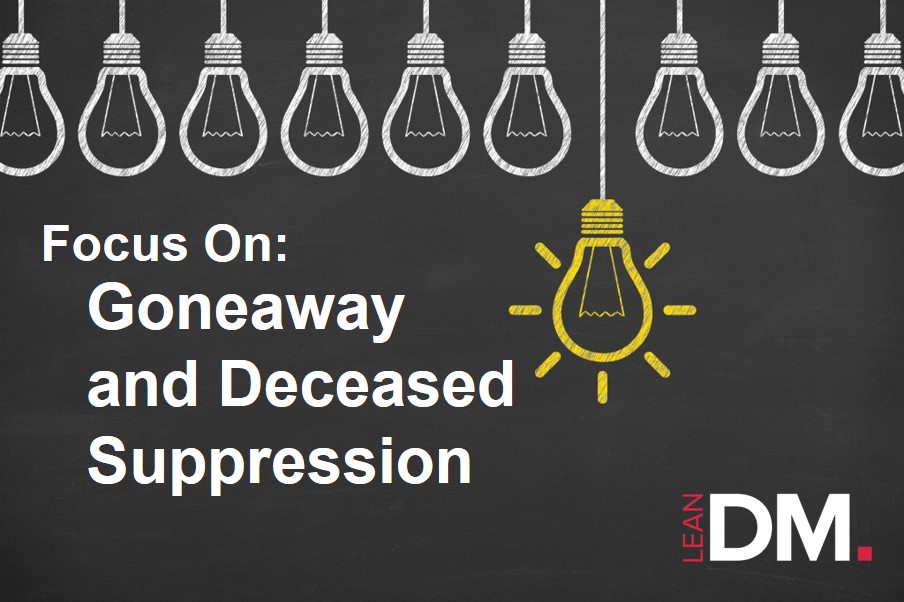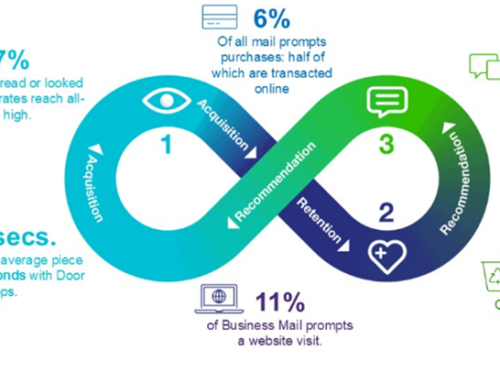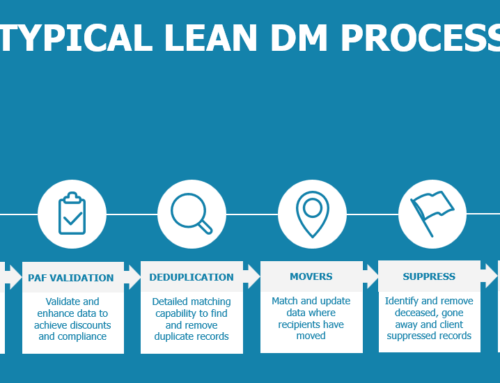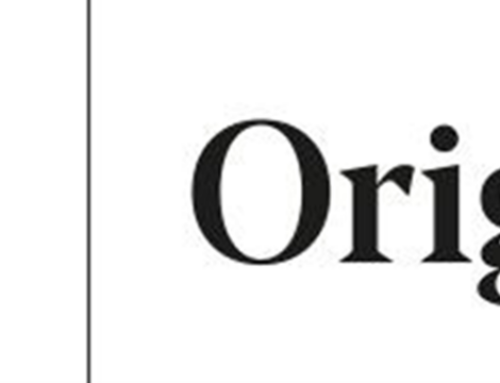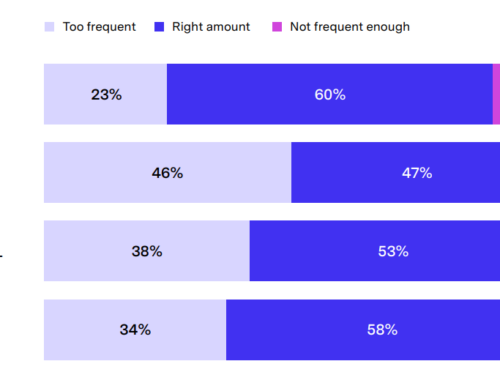The pandemic has had a devastating impact on mortality rates around the world. In the UK, according to CMI, the rise in deaths during 2020 and 2021 is the worst since World War II with over 130,000 additional deaths per year.
In addition around 1.5 million people move house each year. This level of constant change can lead to data decaying at rates of over 30% per year for some organisations. The Office of National Statistics estimate up to 110 items of mail can be sent to the deceased in the 12 months after their death.
For businesses sending mail to people that have passed away or moved house is more than just a waste of printing and postage costs. If these people are not removed the only message being communicated is ‘the brand does not care about its customers’. Moreover, research shows that the damage to the brand is irrevocable with the vast majority of bereaved people saying that they would never again use a company that send mail to a loved one that had passed away.
So, how do businesses quickly and easily remove deceased people or update an address within their databases?
What is Deceased Suppression?
Goneaway and deceased suppression files enable mail users the ability to remove the records of those that have moved or died. These suppressions can either be applied for a single mailing or, for a slightly increased royalty, can be remove them from the database forever. By removing the inevitably unresponsive records from the mail file, response rates are likely to increase and the overall cost of the campaign can be reduced as savings are made on the printing, enclosing and postage costs. There are dozens of suppression file providers, all with their own unique way of sourcing and validating when someone moves home or passes away. Most prominent providers have files into the many millions of records built up over 10 years or more.
As a Mail Producer Will Suppressions Mean Lower Profits?
Some mail producers are of the opinion that suppressing deceased or goneaway records is counter-intuitive. They take the view that suppressions mean lower volumes and therefore must mean lower profits. However, screening incoming client data against suppression files offers an opportunity to save your clients money while also improving margins. Many mail producers charge a premium on the suppression royalty fee charged by the file provider while also charging for the data processing service itself. These fees often outweigh the profits generated on the records that would have been mailed had suppressions not been applied.
A suppression service from The Software Bureau accesses more than 450 million suppression records directly within the on-premise or cloud based application. These suppression files are provided by the most reputable sources such as Royal Mail, Experian, REaD Group, MiExact, DBS Datamarketing, Shine CK and many others. Encrypting and embedding them into our solution has a number of benefits.
1. Speed of use
Without using one of our embedded suppression services, on-premise or Cloud based, data has to be uploaded to an online service part way through a data processing job. This takes longer and introduces more opportunities for errors to creep into the job. All of our solutions are blisteringly fast and returns results in minutes, irrespective of input volume.
2. Flexibility
With more than 15 Suppression lists to choose from, many clients apply the individual files selectively, according to cost and specific client’s requirements. The Software Bureau provides updates to all files on a weekly/monthly basis.
3. Security
You remain in control of the data, removing the need to send files externally to multiple providers. Data standards and client security requirements are easily satisfied within a secure environment, ISO27001 certified.
4. Cost
The extensive use of suppressions by The Software Bureau clients means costs are likely to be lower than if they were to be negotiated by a single user. Similarly, users can configure the suppression hierarchy to match with the cheapest files first, to ensure the most cost-effective suppression match is applied. Also providing access to all the major industry files without the need to have individual agreements with each provider. This reduces bureau overheads significantly.
Download our free data hygiene guide which provides an independent analysis of the data hygiene market.
